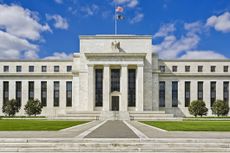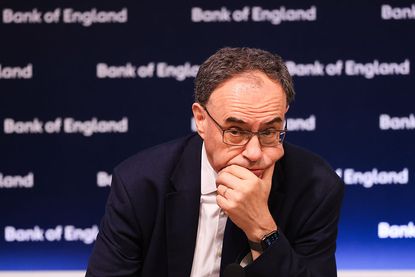Economy
The latest news, updates and features on the UK economy and other global economic stories from the expert team at MoneyWeek.
Explore Economy
-

"Botched" Brexit: Should Britain rejoin the EU?
Brexit did not go perfectly nor disastrously. It’s not worth continuing the fight over the issue, says Julian Jessop
By Julian Jessop Published
-

'AI will change our world in more ways than we can imagine'
Interview Rob Arnott of Research Affiliates talks to Andrew Van Sickle about the AI bubble, the impact of tariffs on inflation and the outlook for gold and China
By Andrew Van Sickle Published
Interview -

Tony Blair's terrible legacy sees Britain still suffering
Opinion Max King highlights ten ways in which Tony Blair's government sowed the seeds of Britain’s subsequent poor performance and many of its current problems
By Max King Published
Opinion -

How a dovish Federal Reserve could affect you
Trump’s pick for the US Federal Reserve is not so much of a yes-man as his rival, but interest rates will still come down quickly, says Cris Sholto Heaton
By Cris Sholto Heaton Published
-

New Federal Reserve chair Kevin Warsh has his work cut out
Opinion Kevin Warsh must make it clear that he, not Trump, is in charge at the Fed. If he doesn't, the US dollar and Treasury bills sell-off will start all over again
By Matthew Lynn Published
Opinion -

How Canada's Mark Carney is taking on Donald Trump
Canada has been in Donald Trump’s crosshairs ever since he took power and, under PM Mark Carney, is seeking strategies to cope and thrive. How’s he doing?
By Simon Wilson Published
-

UK interest rates live: rates held at 3.75%
The Bank of England’s Monetary Policy Committee (MPC) met today to decide UK interest rates, and voted to hold rates at their current level
By Dan McEvoy Last updated
-

Will UK interest rates fall in 2026? Latest Bank of England predictions
The Bank of England will decide interest rates this week. Will we see another cut on Thursday?
By Daniel Hilton Last updated
-

Rachel Reeves is rediscovering the Laffer curve
Opinion If you keep raising taxes, at some point, you start to bring in less revenue. Rachel Reeves has shown the way, says Matthew Lynn
By Matthew Lynn Published
Opinion
